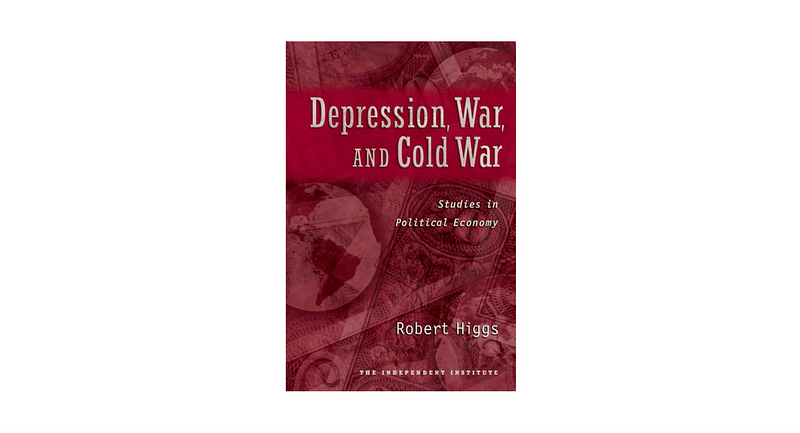- | F. A. Hayek Program F. A. Hayek Program
- | Expert Commentary Expert Commentary
- |
The Research Program of Robert Higgs
Part 3: The Great Depression and World War II
It is commonly believed that World War II was crucial in ending the economic malaise resulting from the Great Depression in the United States. According to this view, the massive spending by the U.S. government on the war effort increased output, reduced unemployment, and stimulated consumption. Robert Higgs’ pioneering scholarship on these issues suggests otherwise.

Bob’s analysis of the Great Depression identifies three key periods. The Great Contraction, which lasted from 1929 to 1933, refers to the massive collapse of the U.S. economy. The Great Duration, which covers the next twelve years, refers to the period when the U.S. economy remained mired in stagnation. The third phase, the Great Escape, refers to the recovery of the U.S. economy and is typically associated with the U.S. government’s entry into World War II. In the context of these three phases, Bob’s scholarship makes two important and novel contributions for understanding the Great Duration and the Great Escape.
The first contribution was the introduction of the notion of “regime uncertainty” to understand the length of the Great Duration. Regime uncertainty refers to the lack of confidence by private investors in their ability to predict the actions of government as they relate to the stability of private property rights. Bob provides evidence that the interventions by the Roosevelt administration resulted in significant regime uncertainty regarding the security of property rights and, hence, the return on capital investment. This disincentivized private investment and contributed to the length of the Great Duration.
What about the role of World War II? A second novel contribution relates to a reinterpretation of the Great Escape. In contrast to the view that the war was the driving factor behind the economic recovery, Bob demonstrates that the Great Escape occurred after World War II ended, not during the conflict as is typically argued. The wartime prosperity typically associated with World War II is a myth. Bob’s novel contribution was to trace the consequences of the command system imposed during the war on standard measures of macroeconomic performance. For example, unemployment figures are distorted because of conscription and employment in military production, while GDP figures were distorted because of the inclusion of military-related production by the government. What ultimately matters for prosperity is not simply employing resources to produce outputs selected by bureaucrats, but rather determining the best use of scarce resources to produce outputs that consumers value. By unquestioningly accepting standard aggregate macroeconomic measures without considering what those numbers actually meant, scholars have overstated the positive effects of the wartime planning by the U.S. government on economic performance.
Taken as a whole, Bob’s research on the Great Depression and World War II has important implications. He provides an important reconsideration of these historical events and how they are currently understood by scholars and the general public. Beyond understanding these past episodes, his concept of regime uncertainty is of crucial importance today for understanding how government policies can undermine investor confidence which has deleterious economic effects. Finally, his work calls into question the idea of “military Keynesianism” which holds that the government can increase economic growth through spending on the military.
Bob was the F. A. Hayek Distinguished Visiting Professor with the F. A. Hayek Program for Advanced Study in Philosophy, Politics, and Economics at the Mercatus Center at George Mason University during the 2015–2016 academic year. During his time at GMU I had the opportunity to talk to Bob about his research on the Great Depression and World War II.
As part of our conversation, we also discussed the consequences of government military spending and its effects on crowding out private economic activity.
You can find audio of my entire interview with Bob here:
To learn more about the Hayek Program, visit ppe.mercatus.org and sign up here to receive updates on Hayek Program research and events.
Christopher Coyne is the Associate Director of the F. A. Hayek Program for Advanced Study in Philosophy, Politics, and Economics at the Mercatus Center at George Mason University. He is also an associate professor of economics and the Director of Graduate Studies in the Department of Economics at George Mason University.


